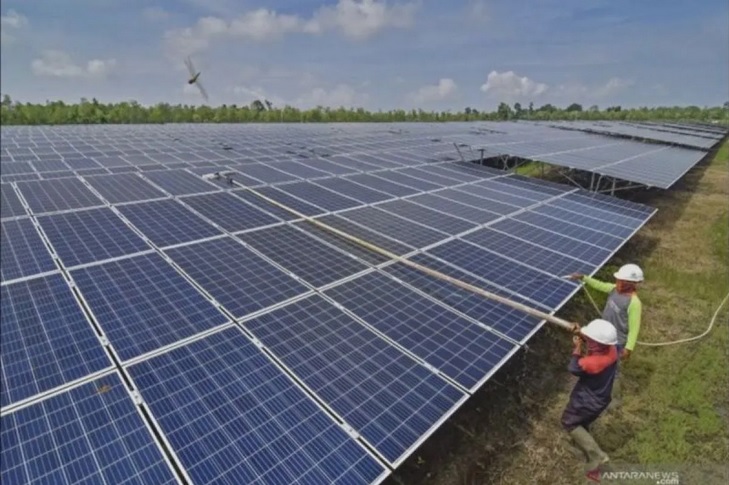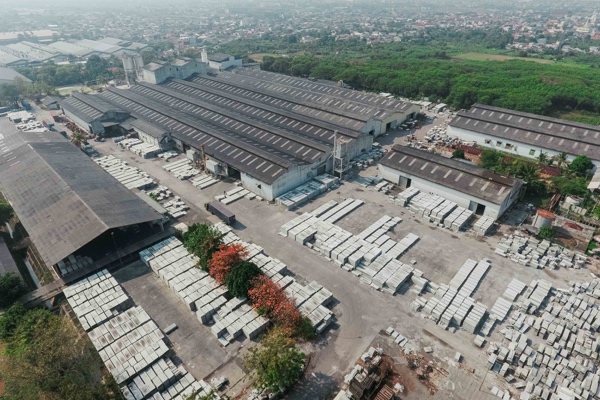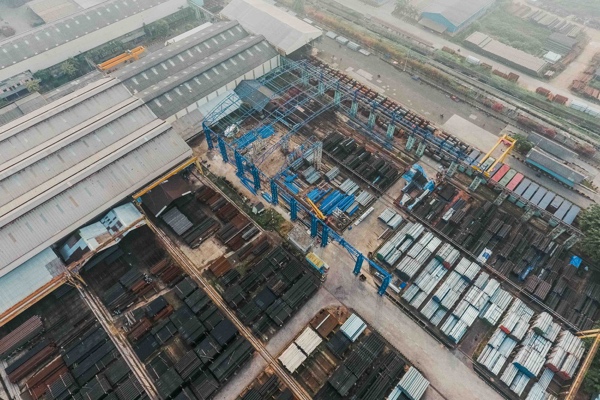The Urgency of Preparing the Legal Basis for the EBT Transition in Indonesia

Source: Antaranews.com | June 3, 2024
For decades, Indonesian society has been faced with dependence on fossil energy and limited future guarantees regarding the change from fossil energy sources to renewable energy sources.
Without a comprehensive legal umbrella that guarantees the process towards a new renewable energy (EBT) transition, this will actually facilitate non-renewable energy mining activities while also hampering the progress of the renewable energy transition.
The study of Rialp-Criado et al. in 2020 clearly provides a picture of 12 countries that have proven optimal in developing renewable energy industries through state intervention through a combination of direct and indirect support.
Various examples of the success of several countries become interesting when compared with Indonesia, which has enormous renewable energy potential, but up to now the renewable energy mix has only reached 13.1 percent in 2023, with a target of 23 percent in 2025.
Indonesia has renewable energy potential reaching 441.7 GW, plus Indonesia’s geographical and geological conditions are truly promising if utilized for the development of renewable energy, for example, solar, wind, water and bioenergy. Also regarding the potential of the Indonesian renewable energy market, especially in the commercial and industrial sectors.
For example, the potential for solar energy that can be maximized reaches 207.8 gigawatts but is currently only used in Indonesia at less than 1 percent (IESR, 2021).
Not to mention the potential for water energy which is 94.4 MW, then wind energy with a potential of 978 MW, and geothermal energy potential of 28.91 GW.
Indonesia’s renewable energy potential should be able to support domestic energy independence and security. However, the optimization so far is still far below the ideal figure, which is only around 13 percent.
Juridical obstacles
Juridical instruments are one of the main factors that can determine whether a country can optimize its renewable energy potential.
In this case, Germany can be used as a role model for the success of legal instruments in developing renewable energy potential with various public policy designs and advanced and integrated legal instruments, including, StrEG and Erneuerbare-Energien-Gesetz (EEG) which are regulations with a feed scheme. -in tariffs or laws that facilitate the implementation of investment in the renewable energy sector.
This juridical effort has not been carried out without the Indonesian Government. Long before that there was already a framework and construction for the use of renewable energy, one of which is stated in Article 33 paragraph (3) of the 1945 Constitution which reads: “Earth, water and the natural resources contained therein, are controlled by the state and used as much as possible for the prosperity of the people ”.
This article also became the basis for the birth of several laws and regulations governing renewable energy, such as Law no. 30 of 2007 which regulates energy issues, then Law no. 30 of 2009 which regulates electricity, to Law no. 21 of 2014 which regulates geothermal heat.
However, the legal regulations discussing the energy transition are still scattered across various laws. On the other hand, there is no specific and systemic law to regulate renewable energy issues.
This big problem was answered when the government together with the DPR formulated the New and Renewable Energy Bill (RUU EBT). The EBT Bill has been included in the 2022 Prolegnas with the clear aim of actualizing the state’s right to control renewable energy for the welfare of the people based on Article 20, Article 21 and Article 33 of the 1945 Constitution.
If we look more deeply, there are several weaknesses in the EBT Bill that is being drafted. Firstly, the concept of the energy trilemma which was introduced by the World Energy Council in 2010 has not been paid attention to. Simply put, this concept describes three aspects of balance needed to fulfill and distribute energy, including: (1) Energy Security, (2) Energy Access, (3) ) Environmental Sustainability.
Among these three aspects, the EBT Bill still concentrates on energy security alone and seems to ignore the other two aspects. An example in Chapter IV concerning Provision and Utilization which includes Articles 20 to Article 26 shows that this bill encourages the provision of renewable energy by maximizing the role of business entities.
However, other articles do not explain in detail the public’s access to related energy from a physical perspective. It also does not explain the tariffs that will be charged to public consumption in the future.
Second, the problem of ambiguity in energy priorities. Fatally, the Government’s efforts to use fossil energy as outlined in the EBT Bill are still visible. Of the total of 40 existing articles, all the terminology used to manage renewable energy sources is inseparable from new energy management.
This new energy comes from processing fossil energy such as nuclear energy and coal bed methane gas. So, in this EBT Bill, what is the Government actually prioritizing? Is it renewable energy, or new energy that still uses fossil energy processing?
It is clear that our legal instruments still do not regulate in detail the scheme for moving towards renewable energy as a supplier of domestic energy needs. The juridical aspect which is the main priority to make the transition to renewable energy a success is still present in parliamentary discourse without any guarantee of the expected results.
Therefore, the government must answer the high hopes of the Indonesian people regarding the EBT Bill properly so that it can make a major contribution to energy transition and decarbonization efforts as well as realizing environmental sovereignty which is a common goal.
The transition to renewable energy is an inevitability so all policies and regulations that support it must be issued, including preparing a comprehensive legal framework for EBT.
*) M. Azrul Tanjung, S.E., M.Sc. is the Chair of the PP Muhammadiyah Environmental Council












